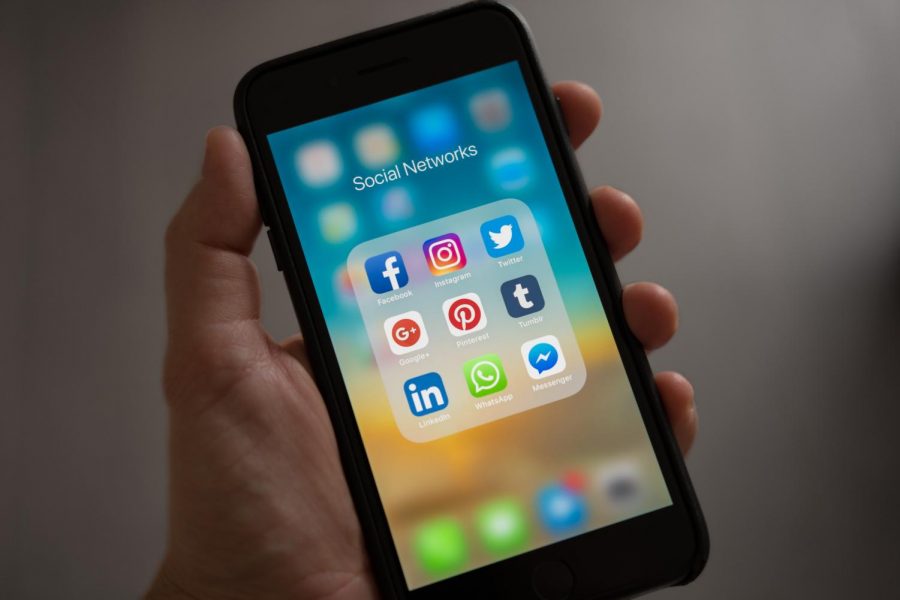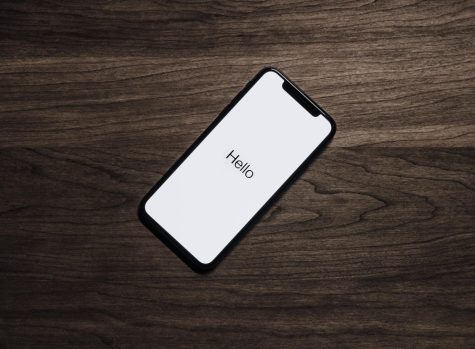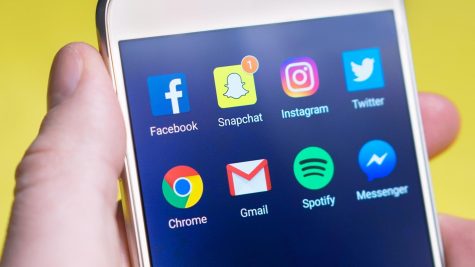Does social media divide people?
Photo by Tracy Le Blanc: https://www.pexels.com/photo/person-holding-iphone-showing-social-networks-folder-607812/
Since 1997, when the first social media platform Six Degrees was launched, our world has been thrust into an era of interconnectivity that was never before even thought possible. Social Media, and the advertisements they sponsor, are hurting this country more deeply than many people realize.
While the ability to speak with one another from any place in the world at any time is one of the most amazing innovations of all time, tracking of user data, tailoring ads, and targeting consumers with products on social media sites has caused mass division amongst different groups of people.
Cookies may sound like a tasty baked treat, but online, cookies are one of the ways that our personal information is being used by massive social media corporations to target ads toward us. These small files are filled with information that tracks small amounts of user data so that a website will be able to know when a particular user is on the site at any given time.
Over time, a trail of what websites are visited is formed. Any site that you thoughtlessly click “allow cookies” on is able to find this trail and targets ads towards you.
To most people, this is never an issue. They get targeted ads for things they were already searching for and may even be helpful in some cases for getting products that you really wanted.
When this really starts to become an issue though, is when those cookies help to target political advertisements towards people.
From the day before the election on November 3rd, up until March 3rd, 2020, Facebook’s CEO had banned the usage of political advertisements on the platform, citing that he was afraid of the divisiveness that was sparked within the country around the time of the election as the reason for getting rid of them.
The issue is not the advertisements themselves, which Mark failed to realize. The issue is the targeting of ads to specific people. A report from the University of Duke found that the ban on political advertisements was not very effective, finding that the spread of misinformation was not mitigated. It continued by saying the ban was counterintuitive by not allowing for committees to adjust incorrect facts being spread about their campaigns.
The Duke paper would go on to say that banning these ads will only go on to hurt the poorer campaigns, rather than the richer campaigns, because these bans removed a large market that poorer campaigns were able to utilize, thus giving the wealthier side an advantage.
Duke does correctly point out that not allowing small campaigns to make statements will lead to misinformation, but that fails to see the real, country diving, civil war sparking, issue here. Misinformation will be spread due to ads that are given to people.
Giving people targeted political ads to people, through the usage of cookies, and the now unbanned political advertisements, people only ever see things that they want to see. Just like how you only get ads for things you want, like the comforter set, people will in large part only receive ads for political campaigns that you search for.
The documentary, The Social Dilemma, explores this concept. Throughout the documentary, social media developers are interviewed and questioned on how the algorithms that Facebook uses can be addictive. In large part, the algorithms that Facebook has designed are meant to keep you hitched onto their website or others that they own. As a side note, of the largest 6 social media sites that have over a billion active users, Facebook owns four of them.
The Social Dilemma also explores the concept that people are trapped into seeing only one side of every story. Due to how ads are targeted towards us, the ads we are given are ones that Facebook (Remember, they own four of the largest media sharing sites) has deemed relevant to us.
When you only see what you want to see, your worldview may shift to only what that one side believes. There are so many people who will refuse to see the other side because they only ever see their side of an argument. If their side of an argument is all they ever see, why would they question if it’s right or wrong? Too many people don’t spend enough time researching things on their own, and it is leading to a mass division in our country and around the world.
That Duke study had the right idea in pointing out why political ads help smaller campaigns, but they failed to see the more nuanced effects that those ads have on the greater American public. So many people think that they are right, that they don’t even fathom the possibility that the reality they have come to believe is true is not what they think it is.
Is it too late for this to be remedied? Really, no one can tell right now. The effects Facebook and other companies like Snapchat or Google have had on this nation are more far-reaching than any national disaster, even if no one realizes it yet.







